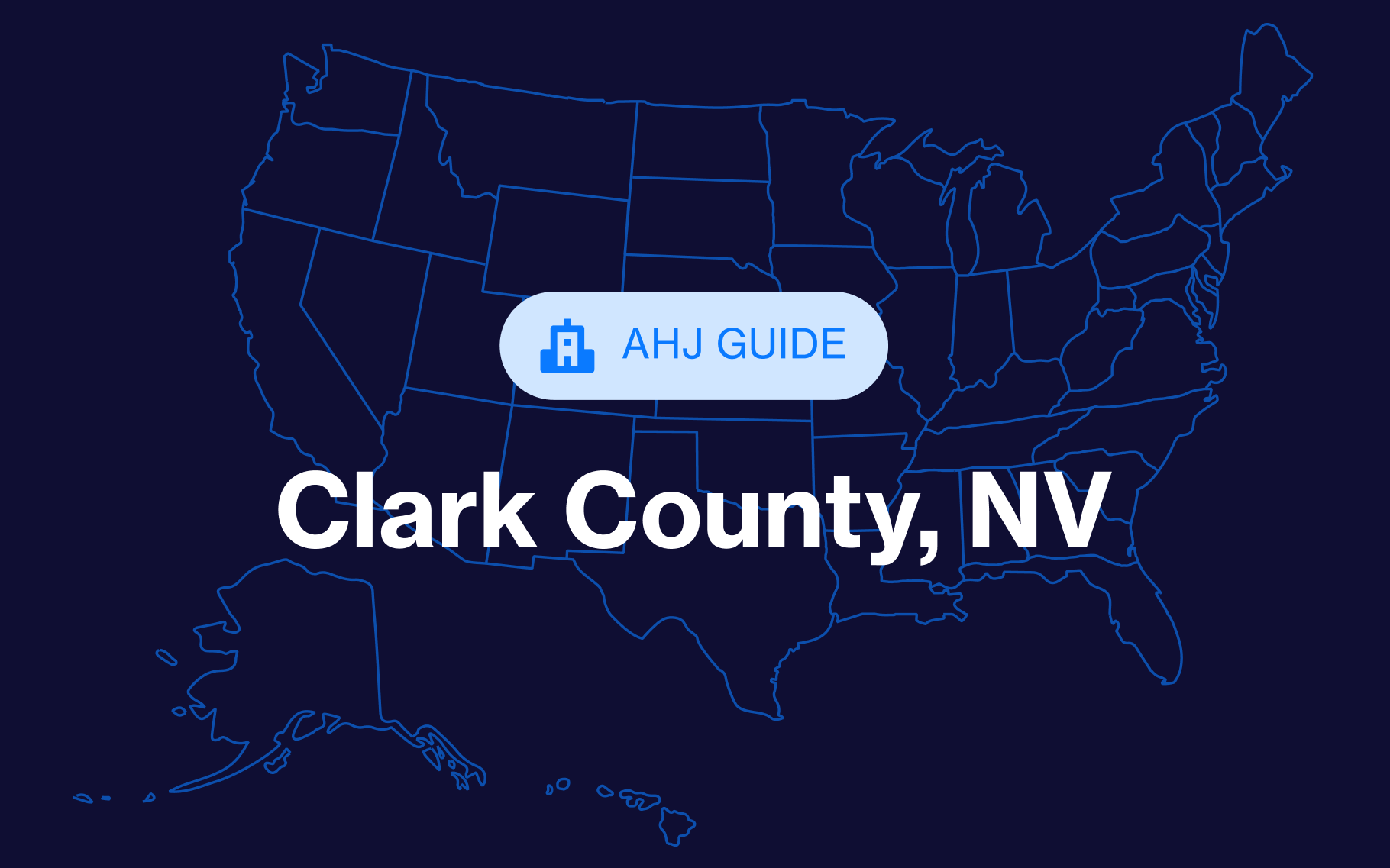Expanding construction operations into Nevada requires a clear understanding of the state’s building permit process.
While Nevada has a statewide building code framework, most permitting authority rests with local jurisdictions, each with their own application procedures, plan review timelines, and fee schedules.
Below, we cover what requires a permit, who issues them, Nevada’s permit requirements, costs, and unique considerations so your projects stay compliant and on track.
Who issues building permits in Nevada?
In Nevada, building permits are issued by local city or county building departments.
Some examples include:
- Las Vegas – Department of Building & Fire Prevention
- Reno – Development Services Department
- Clark County – Department of Building & Fire Prevention
- Washoe County – Building Program
Special projects on state-owned land or within tribal jurisdictions may involve additional permitting agencies. You can find a local building department in Nevada with the Nevada League of Cities & Municipalities Directory.
Nevada building permit requirements
Permit applications in Nevada usually require:
- Completed local permit application form
- Construction drawings/plans (often sealed by a Nevada-licensed design professional for commercial or multifamily projects)
- Site plan with property boundaries, setbacks, and utility locations
- Detailed scope of work
- Contractor’s license number and proof of Nevada State Contractors Board registration
- Proof of insurance
- Applicable fees
Some jurisdictions may require energy code compliance documentation, grading permits, or zoning approvals before issuance.
Nevada building permit costs
Permit fees are determined locally, often based on project valuation, square footage, or flat fees for certain work types.
Typical fee structures:
- Residential new build: $5–$12 per $1,000 of valuation
- Commercial new build: $8–$15 per $1,000 of valuation
- Flat fees for smaller projects: $50–$150 for certain trade permits
- Separate plan review fees: often 40–60% of permit fee
For example, in Las Vegas, commercial building permits may include valuation-based fees plus additional plan check and technology surcharges.
Unique considerations when permitting in Nevada
Statewide code adoption
Nevada uses the International Building Code (IBC) and related codes with local amendments.
Seismic and wind load requirements
Especially relevant in northern Nevada and high-wind desert areas like Washoe County.
Energy efficiency compliance
Nevada enforces International Energy Conservation Code (IECC) standards with desert climate adjustments.
Tourism and gaming facility regulations
Projects in hospitality or gaming industries may require additional licensing and reviews.
How to get a building permit in Nevada
While specific steps vary by jurisdiction, the process generally follows:
- Determine jurisdiction
Identify if the project is in city limits or unincorporated county areas. - Review local requirements
Access checklists, forms, and code amendments on the local AHJ’s website. - Prepare documentation
Ensure drawings meet Nevada state and local code standards. - Submit application
Most major jurisdictions offer online submittal portals. - Plan review
Multi-department review may include zoning, fire, and utilities. - Permit issuance
Pay applicable fees after approval. - Schedule inspections
Arrange inspections at required construction stages. - Obtain final approval
Secure a Certificate of Occupancy for new construction or major renovations.








